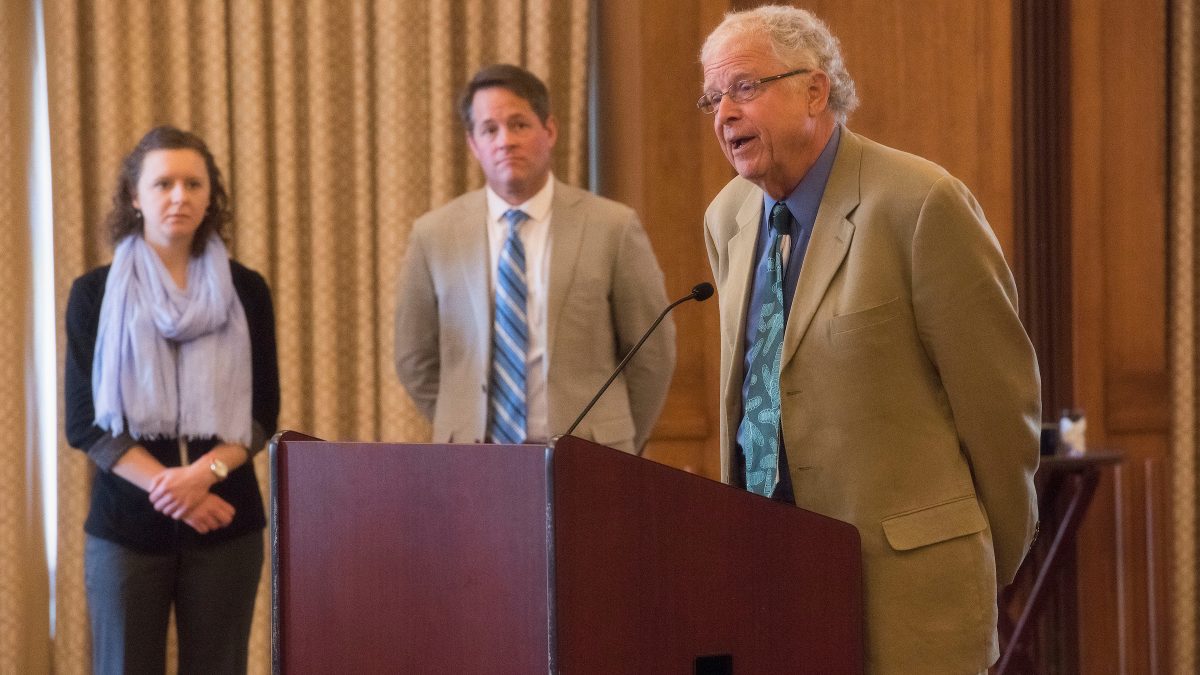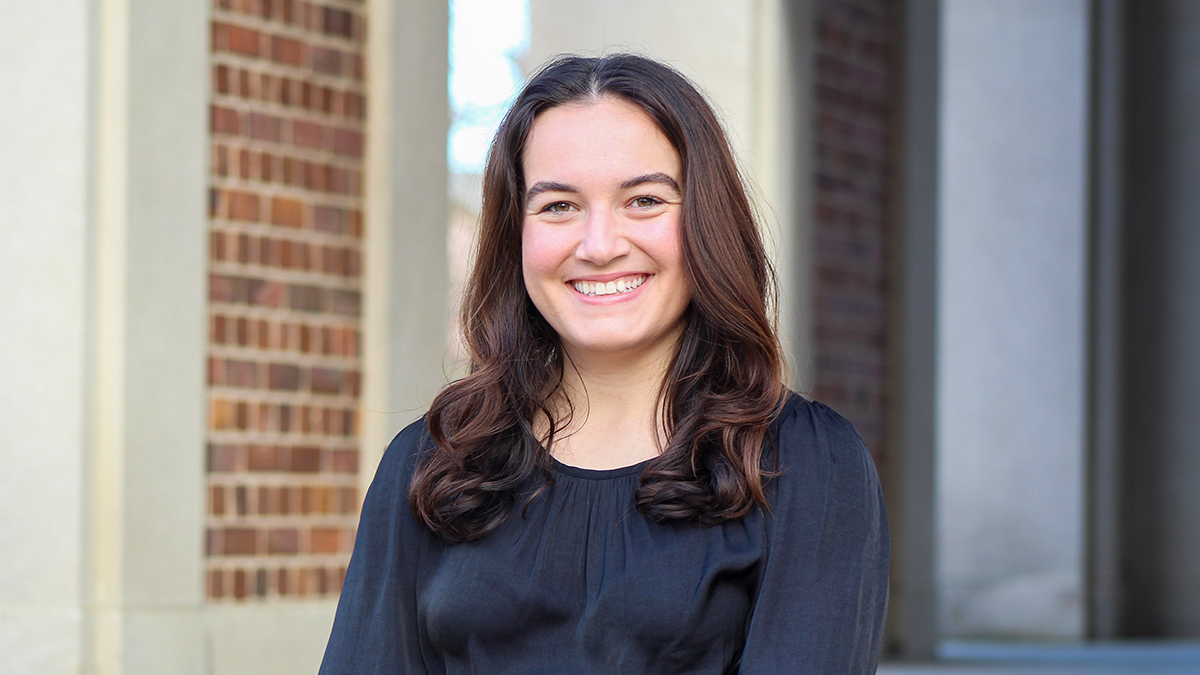Water, water – and arts – everywhere
From detecting water quality problems to helping fishermen grow oysters, Carolina’s Institute for Marine Sciences in Morehead City looks to continue its research while the Board of Trustees also hears - in words and music - about the Kenan Music Scholars program.

Hans Paerl, Kenan Professor of Marine and Environmental Sciences, dressed to impress for his presentation at the March 23 meeting of the University of North Carolina at Chapel Hill Board of Trustees.
Flipping the bottom of his colorful tie at the trustees, Paerl told them, “I’m wearing a tie with blue-green algae on it.”
Paerl’s lab is based in Carolina’s Institute for Marine Sciences in Morehead City, where he and his colleagues do research with local and global impact. Paerl studies blue-green algae, which can make water toxic, in China and in North Carolina’s Neuse River and New River Estuaries and the Pamlico Sound.
Professor Rachel Noble, who also works at the institute, is developing rapid water quality test methods to detect dangers in water that affect swimmers and fishermen. Another institute initiative involves placing monitors on ferries to track the health of North Carolina’s fisheries and recreational areas. And nearly every faculty member in the institute is studying oysters, including professor Neils Lindquist, who is working with local fisherman to grow oysters on rope, Paerl said.
When Hurricane Matthew hit the state in October, the researchers jumped into action with a RAPID grant awarded by the National Science Foundation for rapid response research.
“When there is an emergency, they make really quick decisions. When we applied, within about four weeks or so, we found out that we were able to get funds,” Paerl said.
In addition to the short-term study, Paerl added, the grant will “probably lead to us writing a long-term proposal to look at the long-term effects of these storm events and also follow up on the effects to the Carolina coast.”
A looming threat to research like this was on the mind of Chancellor Carol L. Folt in her opening remarks to the trustees.
“It is true when we look at the new skinny budget that’s coming out from the federal government, it carries a lot of reductions in funding that are particularly important to universities,” Folt said. “It isn’t just research in science and technology and funding for the arts and the humanities. It’s also financial aid to students. All of those are vitally important to us.”
The trustees also heard — in words and music – about the Kenan Music Scholars program. Between descriptions of the highly selective program, current Kenan Music Scholars sang and played instruments (harp, cello and trumpet).
Four scholars each year receive a four-year full scholarship, a stipend for other music enrichment activities, free private lessons and tickets to Carolina Performing Arts shows and the opportunity to combine musical study with courses or a second major in other subjects. This last perk is fairly unusual.
“It’s hard for us to find peer institutions for the Department of Music. You’re either a strict academic program or you’re a performance-based school of music,” said Evan Feldman, the program’s director. “We’re one of the only ones who does both at the same time, both at a high level.”
In other business, the trustees:
- passed a resolution thanking Student Body President Bradley Opere for his service on the board for the past year;
- recognized Nobel laureate Aziz Sancar, Sarah Graham Kenan Professor of Biochemistry and Biophysics, and Melina Kibbe, chair of the Department of Surgery, both in the School of Medicine, on being recently elected to the prestigious National Academy of Medicine;
- approved a request for authorization to plan the Center for Medication Optimization through Practice and Policy in the Eshelman School of Pharmacy; and
- authorized the titles “teaching assistant professor” and “teaching associate professor” for fixed-term faculty.




